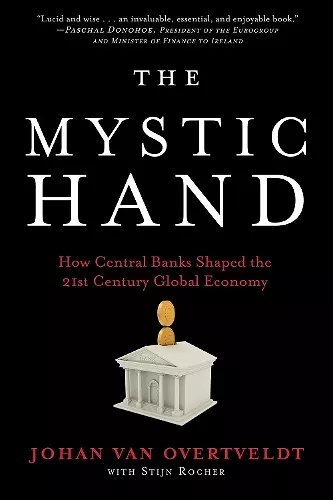The Mystic Hand
What Central Bankers Have Unlearned, Relearned, and Still Have to Learn
Format:Hardback
Publisher:Surrey Books,U.S.
Published:21st Apr '22
Should be back in stock very soon

It’s hardly an exaggeration to claim that over the last few decades, central bankers have achieved unprecedented status. Especially since the global financial crisis of 2008, the world holds its breath whenever they announce new policy interventions. Given the opaque nature of the money supply, in the eyes of most citizens, the “mystic hand” of central bankers is felt everywhere. Never before have central bank policies been so decisive, not only for financial markets but also for national economies and public welfare in general. This book traces the way in which central bankers learned, unlearned, relearned and still have to learn the tricks of their trade. The lessons taught by nineteenth-century grands savants like Henry Thornton and Walter Bagehot, once instilled, were eventually neglected. This led directly to the policy mistakes that produced the Great Depression of the 1930s. When the financial crisis of 2008 broke out, central bankers the world over summoned Thornton’s and Bagehot’s wisdom and acted accordingly. This re-learning saved the world from a repetition of the Great Depression. But when the worst of the financial crisis and ensuing recession were over, central bankers continued applying unconventional monetary policies—in some areas of the world, this even extended to negative policy interest rates and massive interventions in the bond markets, which resulted in constant injections of liquidity. Once the Covid-19 pandemic arrived, most central bankers doubled down on the intensity of these kinds of policies. While the financial crisis required central bankers to act in decisive ways, it can no longer be denied that the consequences of these expansive monetary policies have become major issues. Central bank policies of the last decade and a half have resulted in a relentless build-up of leverage and debt; led to speculative bubbles in different kinds of markets; undermined the willingness of political authorities to put their fiscal houses in order; stimulated a “zombification” of the economy and the growth of shadow banking activities; and contributed to growing inequality around the world. Central bankers are at a crucial turning point for the future of their profession, and even more for the future of our economy. New lessons have to be learnt. Our future depends on these being the right lessons.
Praise for Johan Van Overtveldt’s The Mystic Hand: “Central Banks wield exceptional powers. Their Governors have been central figures in our economic fortunes, from the Great Financial Crisis to Coronavirus. The Mystic Hand is both lucid and wise, explaining the influence and policies of these institutions with the greatest of clarity. [Van Overtveldt] combines his skill as a politician, his experience as an economist and the lightness of touch of a journalist to write an invaluable, essential and enjoyable book.” —Pascal Donohoe, President of the Eurogroup and Minister of Finance (Ireland) “A fascinating Brussels insider’s view on monetary policy” —Axel Weber, Chairman of the Board of Directors, UBS Group, and Former President of the German Bundesbank “Their response to the Coronavirus pandemic has left the world’s central banks supporting the global economy in a way which leaves asset prices intricately linked to their future actions. Johan Van Overtveldt has written a compelling account of the negative implications of this policy and ponders how they can escape the hole they have dug for all of us.” —James Nixon, Head of Thematic Research, Oxford Economics
ISBN: 9781572843066
Dimensions: unknown
Weight: unknown
224 pages